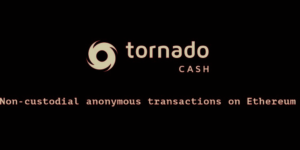
Stay on top of crypto news, get daily updates in your inbox.
- SEO Powered Content & PR Distribution. Get Amplified Today.
- PlatoData.Network Vertical Generative Ai. Empower Yourself. Access Here.
- PlatoAiStream. Web3 Intelligence. Knowledge Amplified. Access Here.
- PlatoESG. Carbon, CleanTech, Energy, Environment, Solar, Waste Management. Access Here.
- PlatoHealth. Biotech and Clinical Trials Intelligence. Access Here.
- Source: https://decrypt.co/215406/bipartisan-lawmakers-seek-to-repeal-sec-crypto-accounting-policy
- :has
- :is
- :not
- 121
- 2022
- a
- ability
- Absolute
- accountability
- Accounting
- accused
- Act
- added
- After
- against
- Allowing
- American
- an
- and
- Application
- approach
- ARE
- AS
- Assets
- Association
- authority
- authorize
- Balance
- Balance Sheet
- Bank
- bankers
- Banking
- Banks
- Beyond
- Bill
- bipartisan
- Bitcoin
- Bitcoin Trust
- body
- Box
- broadly
- bulletin
- by
- capital
- case
- Chair
- changed
- circumstances
- coinbase
- commission
- Companies
- Congress
- Congressional
- considered
- consultation
- continue
- convert
- Corresponding
- Court
- crypto
- crypto accounting
- CRYPTO FIRM
- Crypto News
- Crypto staking
- cryptocurrency
- Current
- custodial
- custodial services
- custodians
- Custody
- Customers
- cynthia lummis
- daily
- Dark
- Debt
- Decrypt
- DID
- digital
- Digital Assets
- district
- Earlier
- effectively
- enforceable
- enforcing
- ETF
- ETFs
- Ether (ETH)
- exchange
- Exchange Commission
- existing
- external
- faced
- false
- financial
- Firm
- flood
- following
- For
- forced
- found
- from
- GAO
- Gary
- Gary Gensler
- Gensler
- get
- gone
- Government
- Government Accountability Office
- Government Accountability Office (GAO)
- Grayscale
- Grayscale Bitcoin Trust
- Group
- Have
- having
- Held
- his
- House
- However
- HTTPS
- Impact
- in
- industry
- industry’s
- institutions
- interpretation
- into
- introduced
- Issued
- IT
- ITS
- January
- joint
- jpg
- judge
- later
- lawmakers
- Laws
- lawsuit
- liability
- Liquidity
- longstanding
- looking
- Making
- March
- Markets
- materially
- mean
- mike
- misleading
- Month
- months
- move
- multiple
- news
- Nickel
- of
- off
- Office
- on
- or
- over
- overreach
- own
- Places
- plato
- Plato Data Intelligence
- PlatoData
- policy
- posted
- press
- Press Release
- Program
- provide
- providing
- purposes
- ratios
- recent
- regulator
- regulatory
- relative
- release
- report
- represents
- requires
- Resolution
- restrictions
- review
- Rule
- s
- sab
- safe
- Said
- say
- saying
- scene
- scope
- SEC
- sec crypto
- Securities
- Securities and Exchange Commission
- Securities Laws
- security
- Seek
- Senate
- Services
- sheet
- significant
- Sound
- Spot
- spot etf
- Squared
- Staff
- Staking
- standard
- Statement
- that
- The
- the security
- their
- this
- this week
- threatens
- time
- to
- too
- top
- towards
- traditional
- treatment
- Trust
- u.s.
- undertook
- Updates
- was
- Website
- week
- weigh
- went
- whether
- which
- with
- without
- would
- wrote
- Your
- zephyrnet
More from Decrypt
Dogecoin Shines as Bitcoin, Ethereum Prices Recover From Summer Slump
Source Node: 994647
Time Stamp: Jul 26, 2021
Bitcoin Falls Below $60K as US Infrastructure Bill Moves Ahead
Source Node: 1114689
Time Stamp: Nov 16, 2021
Sotheby’s Bored Ape Yacht Club NFT Auction Yields $24 Million
Source Node: 1064765
Time Stamp: Sep 9, 2021
Binance US Launches High-Yield Ethereum Staking Just Days Before Merge
Source Node: 1658713
Time Stamp: Sep 7, 2022
The N Project: NFTs of Random Numbers Hit $40 Million Market Cap
Source Node: 1069926
Time Stamp: Sep 6, 2021
NFL All Day NFT Sales Surge on Sundays During Football Games
Source Node: 1684319
Time Stamp: Sep 23, 2022
Joe Lubin: How the Ethereum Merge Went, Why ETH Is Down, NFTs, Metaverse, and the ‘Killer App’
Source Node: 1738285
Time Stamp: Oct 13, 2022
'It Doesn’t Change Anything' Says Tornado Cash After Code Disappears From GitHub
Source Node: 1618445
Time Stamp: Aug 9, 2022
OCC Signals It May Be Less Crypto-Friendly Than Brian Brooks Regime
Source Node: 864136
Time Stamp: May 18, 2021












